Forget planks — 5 compound core exercises that sculpt strong obliques
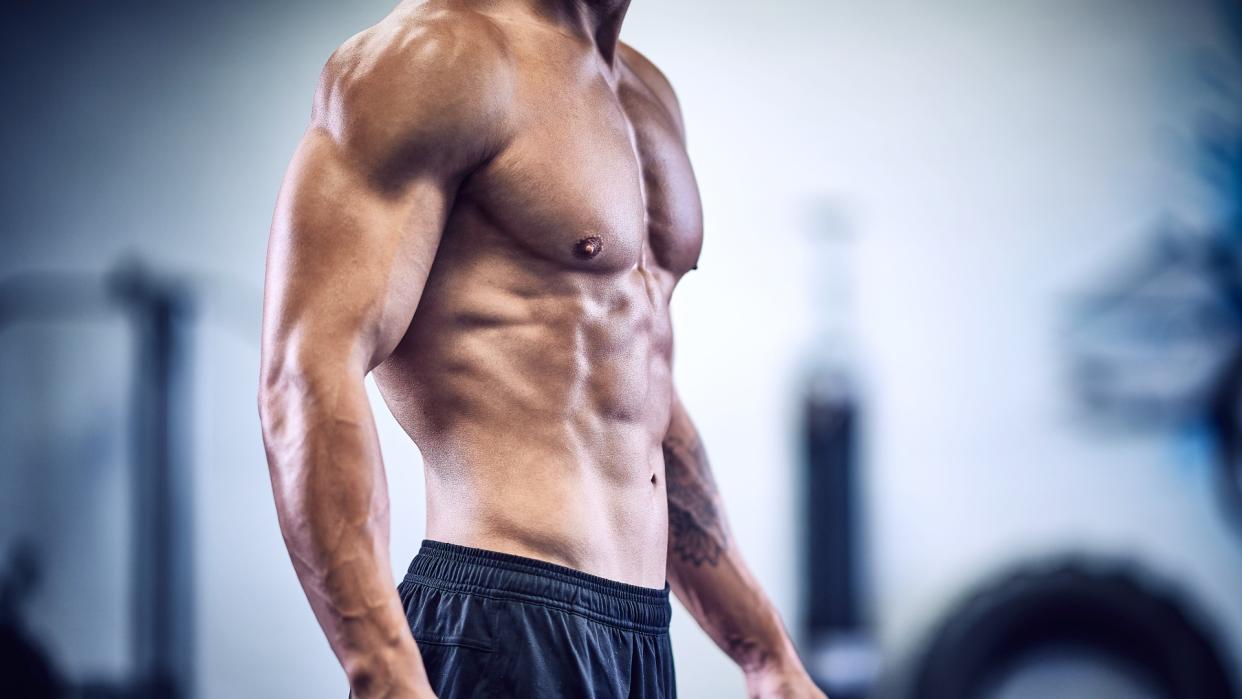
When performing the best ab exercises, the key word is “abs.” Strengthening and defining your oblique muscles takes a different approach — so here are five of the top compound core exercises that also sculpt strong obliques.
If you’re unfamiliar with compound exercises, the term simply refers to a move that targets more than one muscle group and joint — for example, a plank. But don’t worry, because we won’t saddle you with a core workout full of the best plank variations, Russian twists, or bicycle crunches.
Instead, we’ve provided five compound exercises that require different gym equipment ranging from dumbbells or kettlebells to bodyweight, bars and suspension trainers. You can perform each in the gym or cherry-pick for your core workout.
How can I build my obliques fast?
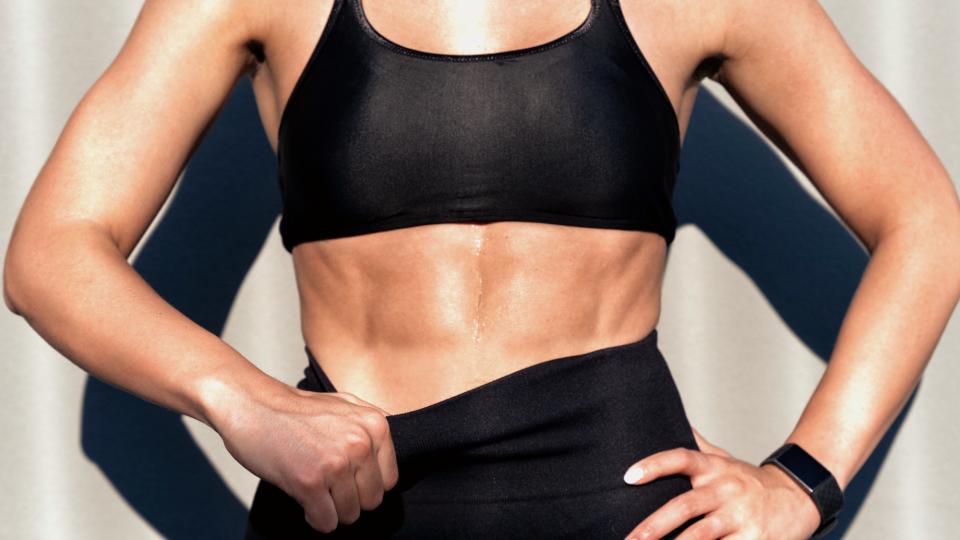
Firstly, there’s nothing 'fast' about growing muscle. It takes a consistent and varied workout routine and a mix of progressive overload (gradually increasing your exercise volume) and looking at lifestyle factors, including diet and body fat percentage.
Your best bet for strengthening and building oblique muscles is to use exercises that specifically target them. Rotation and side flexion are two popular techniques for hitting these muscles, which run down your waist from ribcage to pelvis and support these types of motion.
Shredding your midsection is more about combining a lower body fat percentage to show more of the muscle while building the same muscles — in particular, the external or “superficial” oblique muscles that sit over the internal obliques (which are responsible for stabilization).
Many people find it difficult to develop definition in the area. It’s worth reminding yourself that there’s more to life than walking around sporting a chiseled ‘pack, but whether you want to build your obliques for aesthetic reasons or functionally to strengthen your core and support healthy movement, we’ve got you covered.
What are the 5 compound core exercises?
Lateral kettlebell swings
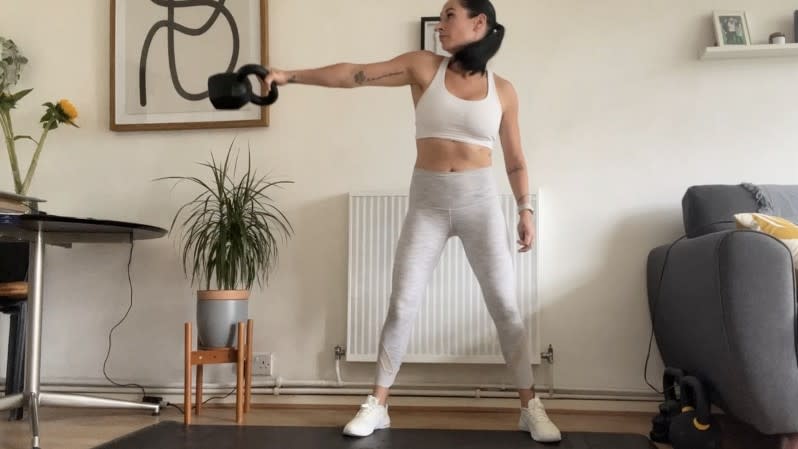
You don’t have to use a kettlebell, but you’ll find a better range if you do. Unlike the Russian kettlebell swing, you’ll swing the weight across the body and rotate your midsection, switching on your obliques. The move also requires you to control the descent of the weight, stabilizing your body against the motion of the traveling bell.
Your hips, glutes, and core muscles are crucial to performing the lateral kettlebell swing properly without your arms or back taking over, and even your hamstrings will do some work, making this the perfect compound exercise to swing your way toward popping obliques.
Spiderman push-ups
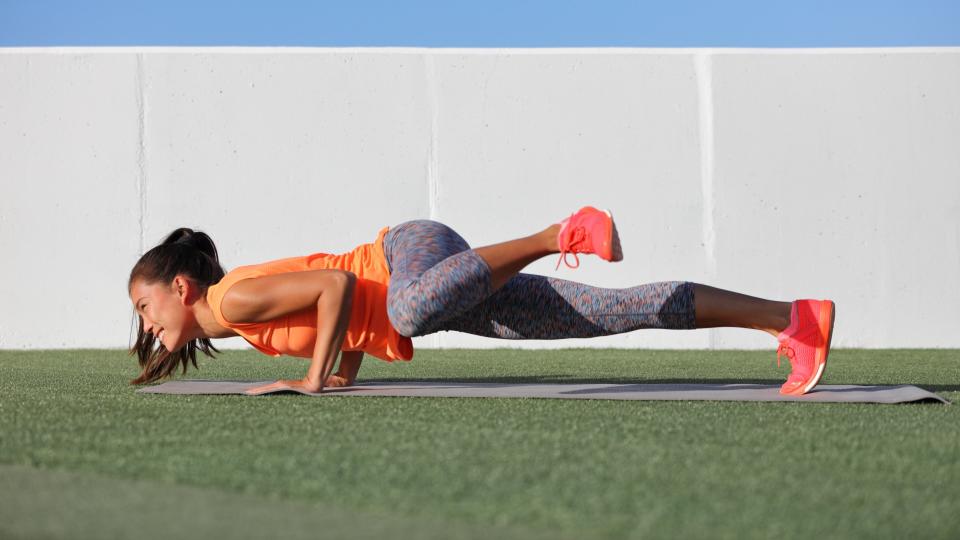
We had to include a bodyweight exercise. After all, working with your body weight is a surefire way to improve your functional and relative strength.
Spiderman push-ups hit your upper body and core together using a gentle side crunch to activate your obliques. Perform a push-up, and as you lower your chest toward the ground, draw your left knee to your left elbow. Pause, return to the starting position and repeat on the other side.
As you move, keep your hips aligned with your shoulders and gently squeeze your stomach to protect your lower back. If you haven’t got standard push-ups down yet, try Spiderman planks instead.
Hanging oblique tucks
Unlike regular hanging leg raises, oblique raises or tucks focus on drawing your knees up to the side. The exercise also improves grip, forearm, and shoulder strength and only requires a pull-up bar (or similar) that you can hang from.
Start holding the bar using a shoulder-width grip, then practice hanging with your thumbs fully wrapped around the bar. Brace your stomach to engage your core, then, pressing your legs together, bend your knees and draw them upward toward the left ribs. Pause, then lower back to center and repeat on the right side. Slightly twist as you move, but avoid swinging back and forth.
Landmine rotations
If you don’t have a landmine set-up available, position your barbell against a corner of the room and set weights on either side. The exercise hits your shoulders, arms, core, hips, and legs.
Hold the barbell with both hands in front of your chest with bent elbows and softly bend your knees. Rotate your torso to the right and draw the barbell to your right hip, pivoting on your left leg as you do. Arc the barbell over to the left and rotate your torso to the left, pivoting on your right foot. Keep your core tight as you alternate sides.
Suspension trainer knee tucks
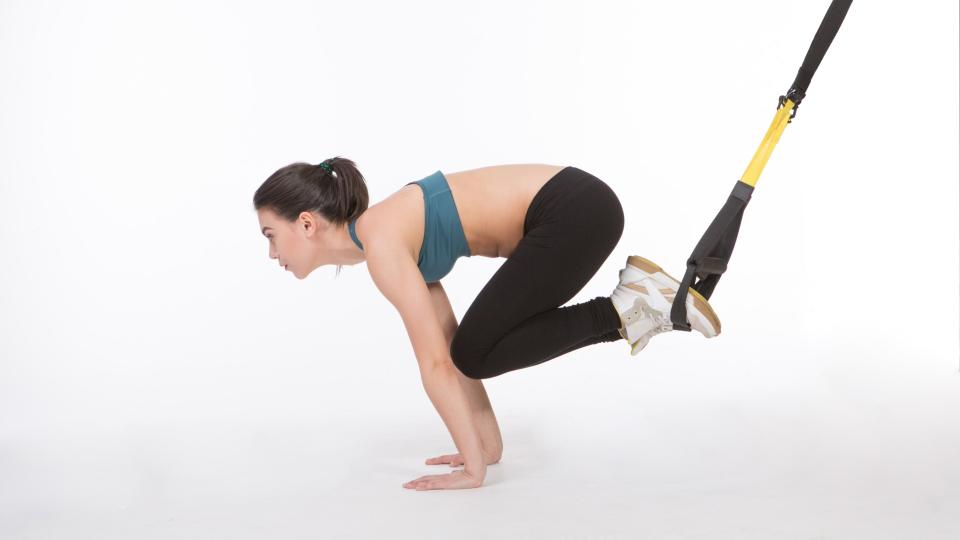
Position your suspension trainer stirrups around shin height, then start on your hands and knees with the stirrups behind you. Place both feet through the stirrups with the tops of your feet resting on them, then position your shoulders over your wrists. Press your legs together, engage your core, and draw your knees toward your left elbow. Pause, return to the starting position, and repeat on your right side.
The move requires plenty of core stability and engages your shoulders, arms, hip flexors, glutes and legs to help drive the movement.
The benefits of compound core workouts
You can perform these exercises in a circuit or opt for 2-4 sets of 10-15 reps per side.
Regularly training these muscle groups can help support spinal stability, pelvic rotation and anti-rotation. That’s why exercises like the Pallof press (resisting rotation through the torso) can help build oblique strength just as effectively as twisting, turning, isometric contraction (like holding a side plank position without moving) and loading one side of your body as you would during single-arm racked squats or single-arm kettlebell swings.
